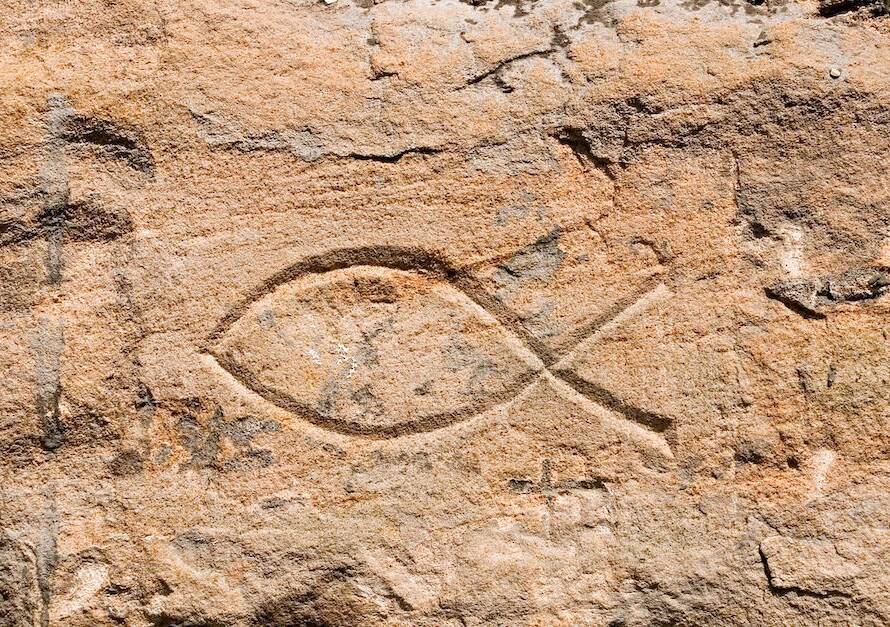The Christian Anointing: A Transforming Experience
In the common language of many Christian churches, the term “anointing” is frequently heard. People speak of “anointed worshipers,” “anointed messages,” or “anointed moments” in worship. But what does this concept really mean? Is it simply an intense emotion, a sentimental atmosphere, or something deeper and more substantial?
To understand the Christian anointing, it is essential to go back to its biblical roots, far from modern and superficial interpretations. The anointing is not a new concept in Pentecostal or charismatic Christianity; it is a theological reality that runs throughout Scripture, culminating in the person of Jesus Christ.

Roots in the Old Testament: Separate and Consecrate
In the Old Testament, anointing consisted of pouring oil (usually olive oil) on the head of a person or object to set it apart for a specific sacred purpose. This symbolic act represented consecration and the empowerment of God’s Spirit for the task at hand.
Kings: Saul, David, and Solomon were anointed by prophets, indicating that they were chosen by God to rule his people (1 Samuel 16:13).
Priests: Aaron and his sons were anointed to serve in the tabernacle, mediating between God and men (Exodus 30:30).
Prophets: People like Elisha were anointed to proclaim the word of God with authority (1 Kings 19:16).
In all these cases, the anointing signified separation to God and divine empowerment . The oil was a visible symbol of the Holy Spirit, empowering the individual to fulfill a role that he or she could not perform on his or her own.

The Summit of the Anointing: Jesus Christ, the Anointed One
The Hebrew word for “Anointed One” is Mashiach , from which we get the word “Messiah.” Its Greek equivalent is Christos , “Christ.” Therefore, when we confess that Jesus is the Christ, we are declaring that He is the Anointed One par excellence .
Jesus himself affirmed this in the synagogue at Nazareth, reading the passage from Isaiah 61:1: “The Spirit of the Lord is upon me, because he has anointed me to preach the gospel to the poor…” (Luke 4:18). In Christ, anointing ceases to be a symbol and becomes a full and permanent reality. He was anointed not with oil, but with the Holy Spirit without measure (John 3:34), combining in his person the three anointed offices: Prophet, Priest, and King.
The Believer’s Anointing: An Inheritance in Christ
The wonder of the gospel is that this anointing does not remain with Jesus alone, but extends to everyone who believes in Him. The New Testament clearly teaches that Christians share in Christ’s anointing.
2 Corinthians 1:21-22: “Now it is God who establishes us with you in Christ, and who anointed us, and who sealed us, and gave us the Spirit as a guarantee in our hearts.”
1 John 2:20, 27: “But you have an anointing from the Holy One, and you know all things…for the anointing itself teaches you all things.”

These passages reveal fundamental truths about the believer’s anointing:
It’s a positional reality: Every true believer has the anointing. It’s not something sought occasionally, but a state of being received at the moment of conversion. It is the seal and guarantee of the indwelling Holy Spirit.
It has a functional purpose: Just as the anointing in the Old Testament empowered us to perform a task, the anointing of the Spirit empowers us to live the Christian life. It gives us discernment to distinguish truth from error (1 John 2:27), power to be witnesses (Acts 1:8), and fruit to please God (Galatians 5:22-23).
It’s not about emotions, but about truth: The biblical anointing is intrinsically linked to truth and the Word of God. The Holy Spirit, who is the Anointer, guides us into all truth (John 16:13). An “anointing” that contradicts Scripture or is sought only through a sensory experience is not the anointing the Bible speaks of.
The Anointing of the Holy Spirit: The Transforming Power of God in the Believer
At the heart of the vibrant and transformative Christian experience lies a fundamental, sometimes misunderstood, but profoundly biblical concept: the anointing of the Holy Spirit . This is not an abstract idea or mere religious sentiment, but the powerful and personal reality of God’s very presence at work in and through his people.

The Agent of Anointing: Who is the anointer?
To avoid confusion, it is crucial to identify the “Anointer.” The Bible is clear: God the Father is the source of the anointing, Jesus Christ is the perfect vessel and model, and the Holy Spirit is the divine Agent through whom the anointing is applied and manifested.
“Now he who establishes us with you in Christ and anointed us is God, who also sealed us and gave us the Spirit as a guarantee in our hearts”(2 Corinthians 1:21-22). God is the person who performs the anointing, and the symbolic “oil,” the seal and guarantee placed within us, is none other than the Holy Spirit Himself.
Therefore, to speak of the “anointing of the Holy Spirit” is to speak of the Spirit’s own work in taking possession of a life, consecrating it, and empowering it for God’s purposes.
Conclusion: Living in the Reality of Anointing
Understanding Christian anointing frees us from two dangerous extremes:
Emotional mysticism: Seeking “moments of anointing” as if they were fleeting, sensation-based spiritual experiences.
Sterile rationalism: Believing in God but living solely on one’s own strength, denying the work and power of the Holy Spirit who dwells within us.
True anointing is the permanent and active presence of the Holy Spirit in the life of the believer, given to us through our union with Christ, the Anointed One. It is what enables us to pray, worship, serve, suffer with joy, and proclaim the gospel with power and conviction.
Therefore, we should not ask for “more anointing” as if it were something we do not have, but rather consciously depend on the anointing we already possess in Christ, allowing the Holy Spirit to fill us, guide us, and manifest His power through our lives, for the glory of God.
Here is a deeply reverent and poetic prayer — a true invocation of His holy presence to pour love upon us like oil from heaven.
O Lord, my God,
Fountain of mercy and eternal flame of love,
I come before You with an open heart —
empty of pride, thirsty for Your presence.
Anoint me, O Lord, with the oil of Your divine love.
Let it flow from heaven like gentle rain,
seeping into every dry place within me,
restoring what sin has wounded,
healing what time has broken.
Let Your love, pure and holy,
wash over my thoughts, my words, my soul.
Let it cleanse me from bitterness,
lift me from fear,
and awaken in me a tenderness like Yours.
Lord Jesus,
You are the Anointed One — the Christ.
Pour out upon me the same love that moved Your heart
to touch the leper,
to forgive the sinner,
to carry the cross.
Let Your divine love be my power,
my language, my breath.
May it guide my hands to mercy,
my voice to blessing,
and my eyes to see others as You see them.
Holy Spirit, flame of divine affection,
descend upon me now.
Consume all hardness within,
and fill me with compassion that never fails.
Let my life become a living vessel of love —
a lamp burning with the oil of heaven,
lighting the way for others to find You.
O Adonai, my Father,
let Your love mark me as Yours.
Let it overflow so greatly
that every heart I touch may feel Your warmth,
and every word I speak may carry Your peace.
This I pray,
with humble awe and grateful soul —
Anoint me, Lord, with Your divine love.
Let heaven’s oil fall upon me, now and forever.
In Jesus’ precious name,
Amen.

The Song: Anointed One
“Anointed One” is a powerful gospel worship anthem that celebrates the divine anointing poured out on chosen vessels throughout Scripture, culminating in Jesus Christ—the ultimate Anointed One. With rich harmonies and a choir-driven arrangement, the song traces the sacred legacy from David’s anointing by Samuel to Moses, Elijah, and Esther, each called for a divine purpose.
The chorus erupts in praise for Jesus, crowned in glory and robed in light, whose anointing breaks every chain. Through call-and-response and a Spirit-filled bridge, the song invites believers to embrace their own anointing, declaring their identity as sent ones, marked by Heaven’s oil. It’s a soul-stirring celebration of purpose, power, and praise.
“Anointed One” – Gospel Worship Song
[Verse 1 – Solo Lead]
From the oil on David’s head, to the fire Elijah called,
You chose the weak to show Your strength, You answered every call.
Moses stood on holy ground, with glory on his face,
You poured Your Spirit out on him, a vessel of Your grace.
[Pre-Chorus – Choir Harmony]
Oh, the power of Your hand,
Moves through every chosen man.
But none compare, none ever will,
To the Lamb on Zion’s hill!
[Chorus – Full Choir with Gospel Drive]
🎵 Jesus, the Anointed One!
Healer, Savior, risen Son!
Crowned with glory, robed in light,
You broke the chains and won the fight!
Holy Spirit, fall again,
Let Your fire never end!
We are called, we are sent,
By the oil of Heaven’s scent! 🎵
[Verse 2 – Solo Lead with Choir Echo]
Samuel poured the sacred oil (🎶 Sacred oil!)
David danced with heaven’s joy (🎶 Heaven’s joy!)
Esther stood with royal grace (🎶 Royal grace!)
Chosen for a time and place.
[Bridge – Call and Response]
🎵 Who was anointed to part the sea? (Moses!)
Who called fire from Galilee? (Elijah!)
Who faced giants with a sling and stone? (David!)
Who wore thorns to claim the throne? (Jesus!)
🎵 Jesus! Jesus! Jesus!
The Anointed One!
[Final Chorus – Modulated Key, Full Choir]
🎵 Jesus, the Anointed One!
Healer, Savior, risen Son!
Crowned with glory, robed in light,
You broke the chains and won the fight!
Holy Spirit, fall again,
Let Your fire never end!
We are called, we are sent,
By the oil of Heaven’s scent! 🎵
[Outro – Choir A Cappella]
🎵 We are anointed, we are Yours,
Vessels of love, forevermore.
Jesus reigns, our victory won,
All praise to the Anointed One. 🎵
Bible Study: The Christian Anointing – A Transforming Experience
Opening Prayer: Heavenly Father, we come before you today asking for the illumination of your Holy Spirit. Open our hearts and minds to understand the profound truth of our anointing in Christ. Move us from a place of seeking an experience to resting in the identity you have already given us. Teach us what it means to live in the power of your Spirit, for your glory. In Jesus’ name, Amen.
Icebreaker:
Think of a time you heard the word “anointing” used in a church or Christian context. What was the situation? What did you think it meant at the time?
The article states that anointing in the Old Testament was about separation to God and divine empowerment.
Key Scriptures:
1 Samuel 16:13: Then Samuel took the horn of oil and anointed him in the presence of his brothers, and the Spirit of the LORD came powerfully upon David from that day forward.
Exodus 30:30: “Anoint Aaron and his sons and consecrate them so they may serve me as priests.”
1 Kings 19:16: “…anoint Elisha son of Shaphat from Abel Meholah to succeed you as prophet.”
Discussion Questions:
What three primary offices were anointed in the Old Testament? What was the purpose of each?
What was the visible symbol of anointing (the sign), and what was the invisible reality it pointed to (the substance)?
Read the 1 Samuel 16:13 passage. What was the immediate and tangible result of David’s anointing? What does this tell us about the connection between anointing and God’s power for a task?
Application:
The anointing was always for a purpose—to enable someone to do God’s work. How does understanding anointing as “divine empowerment for a God-given task” change how we view serving in the church today?
The article calls Jesus “the Anointed One par excellence.” He is the fulfillment of all the anointed offices.
Key Scriptures:
Luke 4:18-19: “The Spirit of the Lord is on me, because he has anointed me to proclaim good news to the poor. He has sent me to proclaim freedom for the prisoners and recovery of sight for the blind, to set the oppressed free, to proclaim the year of the Lord’s favor.”
John 3:34: For the one whom God has sent speaks the words of God, for God gives the Spirit without limit.
Discussion Questions:
According to Jesus’s own words in Luke 4:18, what was He anointed by the Spirit to do? List the actions.
How does the description in John 3:34 differentiate Jesus’s anointing from the anointing of Old Testament figures? (Hint: “without limit” or “without measure”).
The article says Jesus combined the three anointed offices. How do we see Jesus acting as our Prophet (speaking God’s word), our Priest (mediating between God and man), and our King (ruling and reigning)?
Application:
The mission Jesus was anointed for is now our mission as His body (the Church). How can we, empowered by the same Spirit, participate in proclaiming good news, freedom, and healing to our world?
This is the core of the New Testament shift: the anointing is no longer just for a select few leaders, but for every believer.
Key Scriptures:
2 Corinthians 1:21-22: Now it is God who makes both us and you stand firm in Christ. He anointed us, set his seal of ownership on us, and put his Spirit in our hearts as a deposit, guaranteeing what is to come.
1 John 2:20, 27: But you have an anointing from the Holy One, and all of you know the truth… As for you, the anointing you received from him remains in you, and you do not need anyone to teach you. But as his anointing teaches you about all things… remain in him.
Discussion Questions:
According to 2 Corinthians 1:21-22, who performs the act of anointing? What is the “seal” and “guarantee”?
Based on these verses, is the anointing something we strive to get or a reality we already have in Christ? How should this truth affect our prayers?
What is one of the key functions of the anointing listed in 1 John 2:27? How does the Holy Spirit help us discern truth from error in a world of conflicting messages?
Application:
The article warns against two extremes: emotional mysticism and sterile rationalism. Which tendency are you personally more prone to? How does understanding the anointing as a permanent, truth-based reality from God help you find a healthy balance?
The conclusion of the article provides a crucial application: we don’t need to beg for more anointing, but to depend on the one we already have.
Key Scriptures:
Galatians 5:22-23, 25: But the fruit of the Spirit is love, joy, peace, forbearance, kindness, goodness, faithfulness, gentleness and self-control… Since we live by the Spirit, let us keep in step with the Spirit.
Ephesians 5:18: …be filled with the Spirit (often interpreted as a continuous action: “be continually being filled”).
Discussion Questions:
The “fruit of the Spirit” (Galatians 5:22-23) is a primary evidence of the anointing at work. Which of these fruits do you see growing in your life? Which would you like to see more of?
What does it look like in practical terms to “keep in step with the Spirit” (Gal. 5:25) on a daily basis?
The article says we should “consciously depend” on the anointing. What is one specific area of your life (e.g., parenting, your workplace, a difficult relationship, a ministry role) where you need to consciously depend on the Holy Spirit’s power this week, rather than your own strength?
Application:
Instead of praying, “God, give me more anointing,” try praying this week: “Holy Spirit, I thank you that you live in me. I depend on your power and wisdom right now to [face a challenge, love a difficult person, understand Scripture, etc.].” Keep a journal of any differences you notice in your perspective or actions.
Closing Prayer:
Lord Jesus, thank you for being the Anointed One who has shared your anointing with us. Thank you, God the Father, for anointing us, sealing us, and giving us your Spirit as a guarantee. Holy Spirit, we acknowledge your presence in us. Forgive us for ignoring you or seeking you only for experiences. Teach us to daily depend on your power, to walk in step with you, and to bear fruit that brings glory to our Father. May we live today in the full reality of our anointing. Amen.



